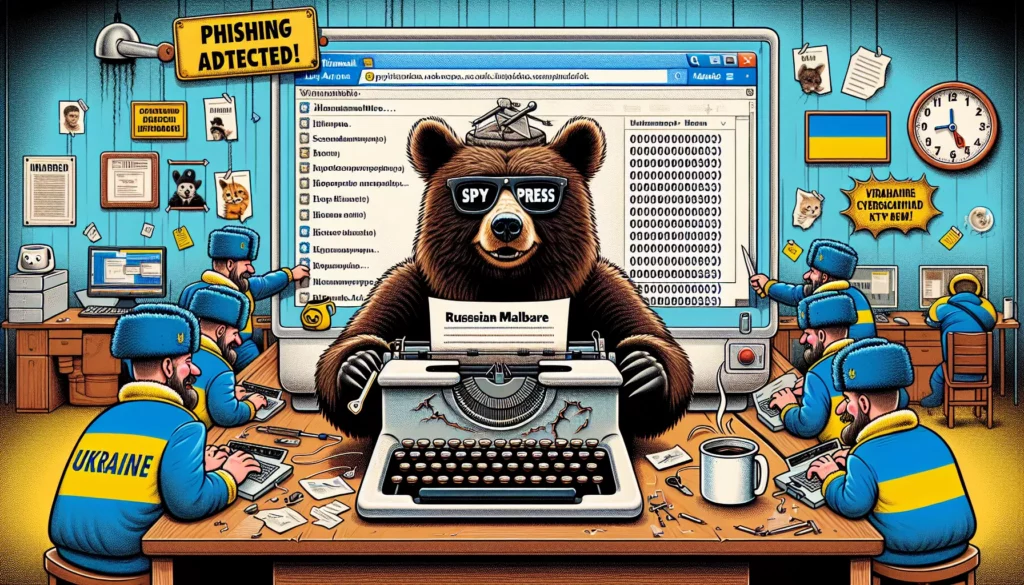Russia-Linked SpyPress Malware Leverages Webmail Vulnerabilities for Espionage Against Ukraine
ESET has conducted an in-depth analysis of RoundPress, a significant cyber espionage campaign attributed to Russia’s Fancy Bear, also known as Sednit. This operation primarily targets organizations associated with Ukraine, utilizing webmail services as a vector for compromised access.
Overview of the Campaign
RoundPress is characterized by its sophisticated tactics aimed at leveraging vulnerable webmail accounts within Ukrainian entities. The campaign employs a combination of social engineering and phishing techniques to bypass security measures, ultimately facilitating unauthorized access to sensitive information.
Key Findings
ESET’s investigation uncovered several critical aspects of the RoundPress campaign:
1. Target Identification: The primary focus of the campaign is on organizations that have ties to Ukraine, including government bodies, NGOs, and businesses with geopolitical interests. The selection of targets indicates a strategy aimed at gathering intelligence that could influence regional stability.
2. Delivery Mechanism: The attackers exploit phishing emails designed to resemble legitimate communications. These emails typically contain malicious attachments or links that lead to credential harvesting sites.
3. Persistent Access: Once access is gained, the attackers utilize various tools to maintain persistence within the compromised networks. This includes the deployment of malware capable of keylogging and exfiltrating sensitive files without detection.
4. Operational Security: Fancy Bear demonstrates a high level of operational security, employing various methods to obfuscate their activities and hinder attribution efforts. This includes the use of anonymizing services and infrastructure that complicates tracking.
Impact Assessment
The implications of the RoundPress campaign are significant, particularly regarding the ongoing geopolitical tensions in the region. The successful infiltration of targeted organizations poses a risk of data breaches that could impact national security, economic stability, and public safety.
Recommendations for Defense
To mitigate the risks associated with campaigns like RoundPress, organizations are advised to implement the following security measures:
– Employee Training: Regular training should be conducted to raise awareness about phishing threats and social engineering tactics.
– Email Filtering: Advanced email filtering solutions should be employed to detect and block suspicious communications before they reach end-users.
– Multi-Factor Authentication: The implementation of multi-factor authentication for all webmail accounts adds an important layer of security, making it more challenging for attackers to gain unauthorized access.
– Incident Response Plan: Organizations must have an incident response plan in place to quickly address potential breaches and reduce the impact of any cyber espionage activities.
Conclusion
The RoundPress campaign exemplifies the continuing threat posed by sophisticated cyber espionage actors. As such, vigilance and robust security practices are essential in safeguarding sensitive information against emerging threats in the cyber landscape. Adapting to the evolving methods employed by adversaries will be crucial for organizations operating in politically sensitive environments.








